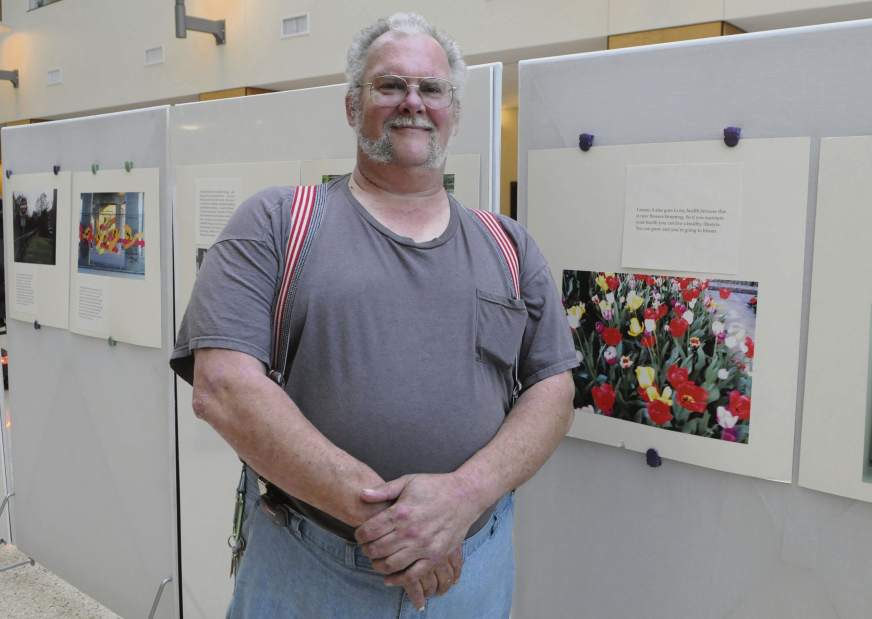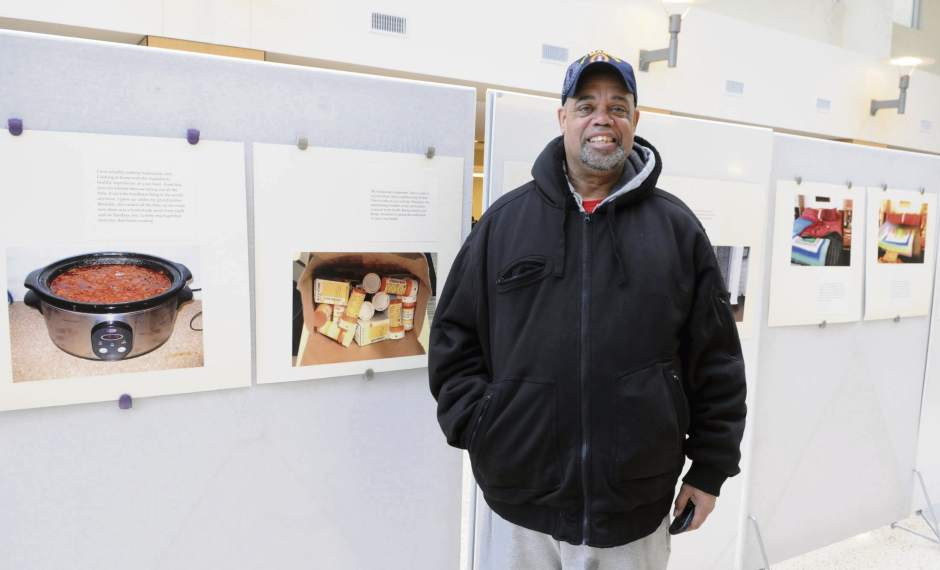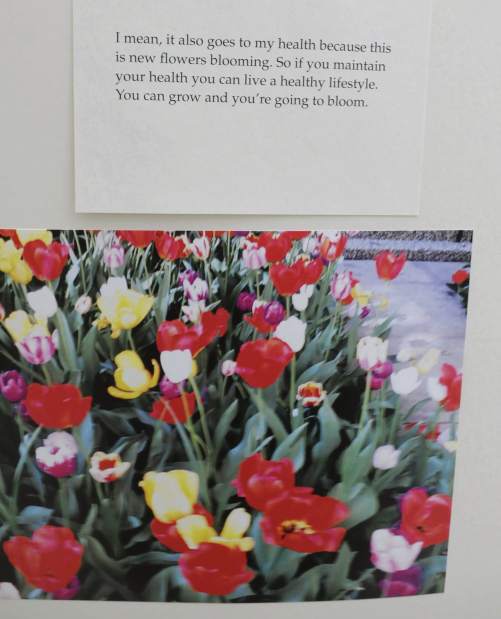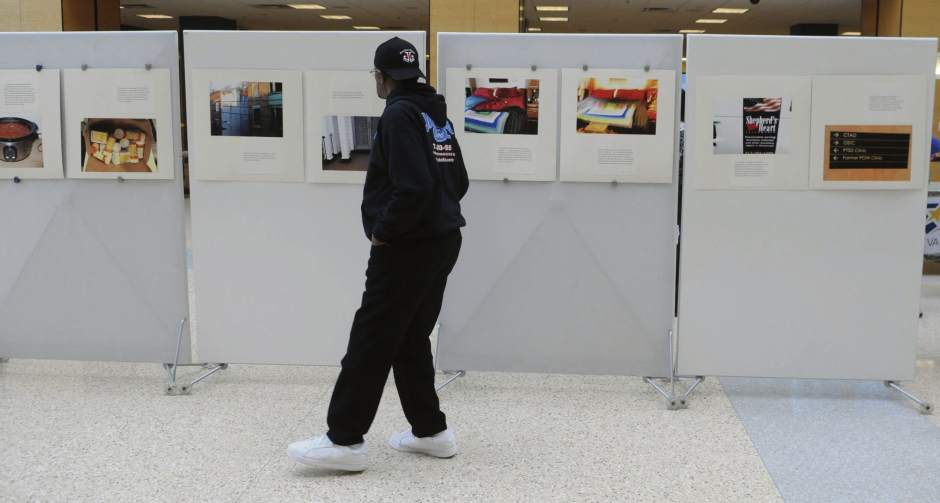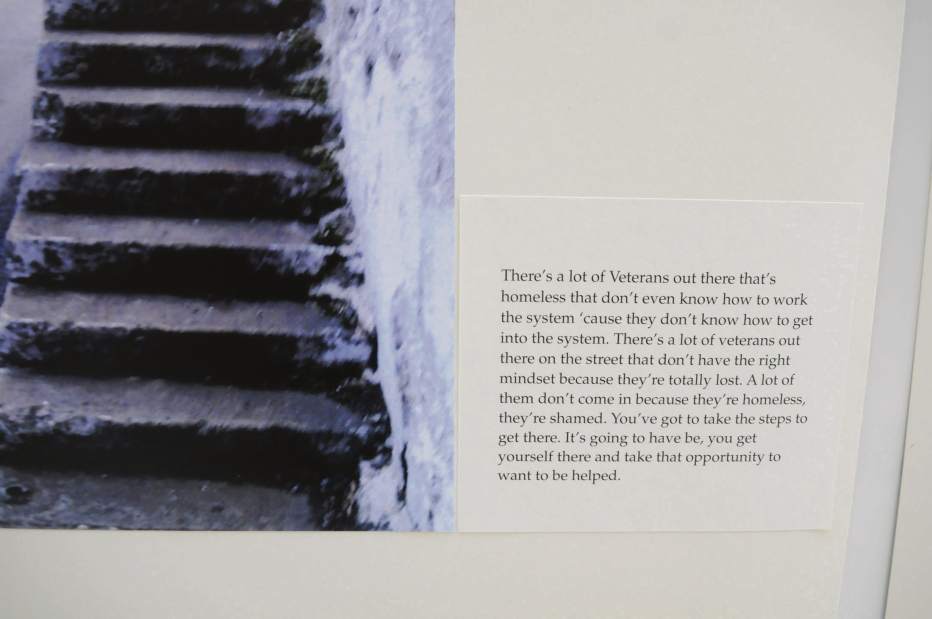VA Pittsburgh exhibit chronicles support for destitute vets
A bout of pancreatitis landed Ed Schwirian, a former Army medic, in the VA hospital in Oakland.
An inability to pay rent for his Sharpsburg apartment landed him on the streets of Pittsburgh when he was released.
“I slept under a bridge, anywhere I could,” said Schwirian, 58. “I had a tarp to keep me dry and a blanket to keep me warm.”
An avid fisherman and amateur photographer, Schwirian is one of 20 Pittsburgh-area veterans selected to participate in a study through VA Pittsburgh Healthcare System to provide feedback on homeless services through photos and interviews.
An exhibit of 36 photos taken by local homeless veterans is on display through Wednesday at the system's Oakland campus. It is available online as well.
This is the first such effort by the Department of Veterans Affairs, said Lauren Broyles, a research health scientist in the VA's Center for Health Equity Research and Promotion.
“The idea is to amplify their voices and their experiences,” Broyles said. “We had lots of big data on these things but no idea what veterans thought.”
An estimated 85 veterans are homeless in Pittsburgh at any time. VA Pittsburgh each year offers services to more than 800 homeless veterans, including health care and assistance for housing in transitional or permanent locations.
The study, conducted from March through August, was funded with a $25,000 grant from the Mental Illness Research, Education and Clinical Center.
The study provided cameras to 20 veterans, who documented their lives for two weeks. The veterans took 351 photographs and recorded 1,200 minutes of interviews, primarily regarding their images and thoughts on VA homeless services.
“It's truly listening to the voice of a veteran and getting what big data or questionnaires cannot,” Broyles said.
Each image is accompanied by a short narrative explaining its meaning by the veteran who took it.
Among the images: a balogna sandwich and thoughts of eating processed food. Glass front doors to an apartment building and new home. Crumbling concrete steps leading up — and offering a way to a better life.
A winter shot of tree limbs and the ground covered in snow, representing purity and a place without sickness. Hanging next to it was a photograph of a cheeseburger, fries and soft drink. Nearby, another shot peeks inside a brown paper bag filled with plastic pill bottles and boxes of diabetic supplies.
Leslie Thompson, 57, said he took photos of his food and medicine to represent the things he doesn't need and those he does.
“I want to try to make it to 80, if I'm lucky and do the right thing,” he said.
Doing the right thing hasn't always come easy, Thompson said. He grew up in Squirrel Hill before he said he served in the Army, Navy and Marine Corps.
He got out in 1988, and years of living in Italy and Greece were followed by more in Florida.
“Toes in the sand, umbrellas in the drinks. You know the routine,” Thompson said.
When he returned to Pittsburgh in 1996 for his 20th class reunion at Taylor Allderdice High School, he brought a substance abuse problem with him.
Thompson spent the next decade in and out of shelters and different cities.
“I was trying to find results by doing the same things,” he said. “Bad people, bad choices.”
He has lived in Rankin for about a year with VA assistance.
“This study is crucial to get people to see what the VA really does for people,” he said. “These people are dedicated to helping people like me.”
Schwirian recently moved into a Hill District apartment with help from the VA and Catholic Charities. He has worked as a kitchen steward at UPMC Presbyterian for nearly two years, including a month last year when he lived on Downtown streets.
Within two days of the VA's Health Care for Homeless Veterans program learning of his plight, Schwirian had a bed in an Uptown shelter for veterans.
Three photographs in the exhibit came from Schwirian's camera. One is of a sign for Shepherd's Heart, the shelter where he lived for six months. Another shows a bed of tulips, their blooms representing his new life, he said.
The third is of a tackle box and the solitude he said fishing brings.
“It's my getaway. I can sit on a riverbank in peace and quiet,” Schwirian said. “I let my anger and worries float down the river, let somebody else take them.”
Jason Cato is a writer for Trib Total Media. Reach him at jcato@tribweb.com.

